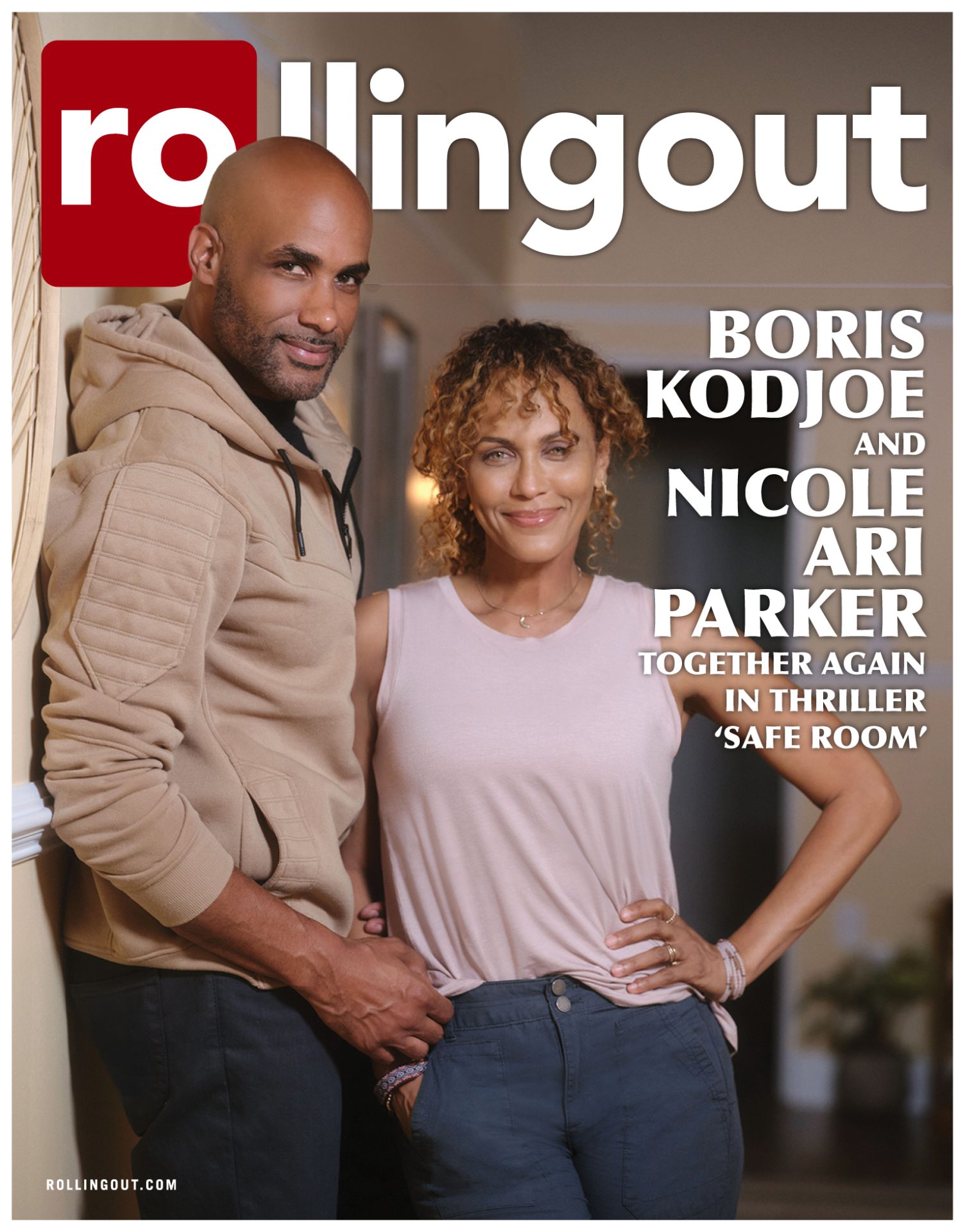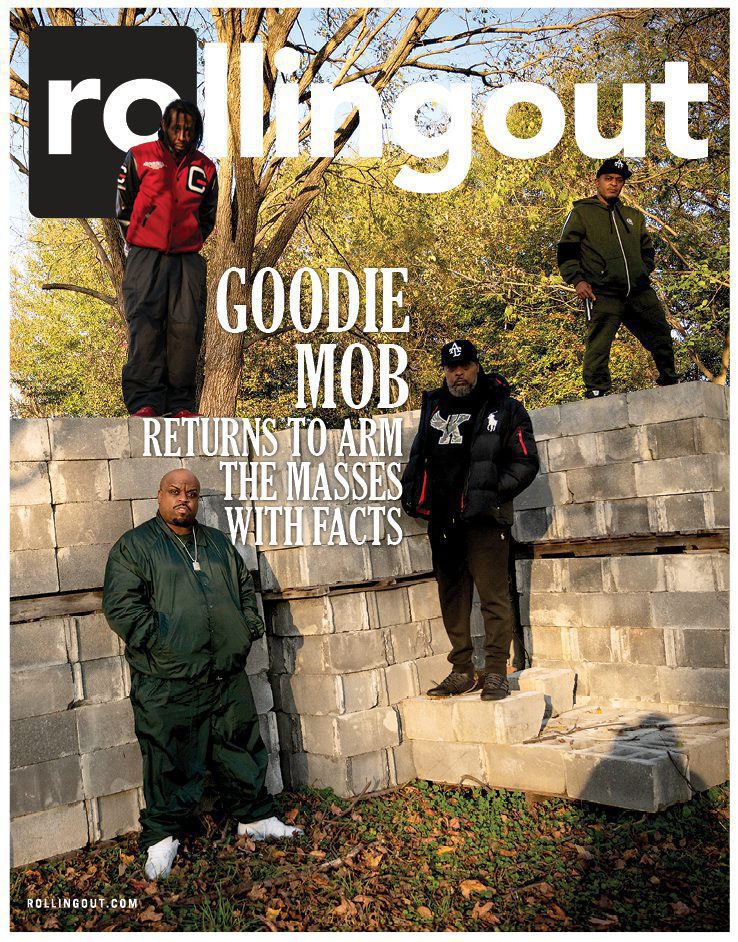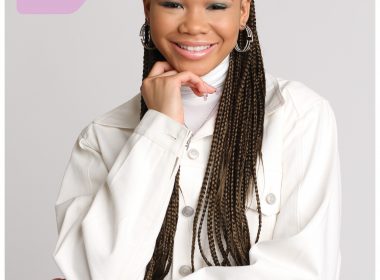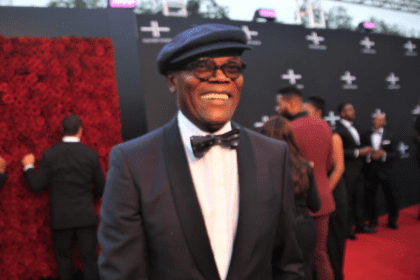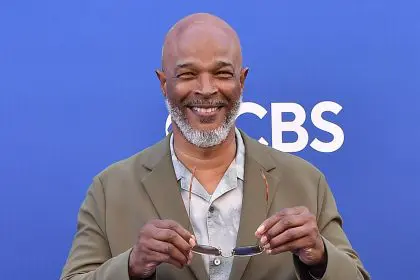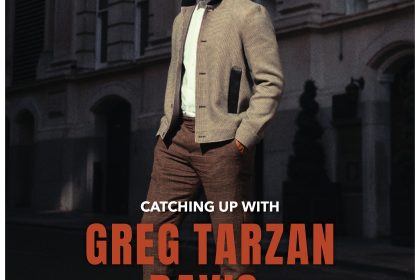
Mekhi Phifer has built one of the more enviable résumés in Hollywood. Since breaking through in the 1990s in films such as Clockers and Soul Food, the Harlem, New York-born actor has become a mainstay in Hollywood on the big and small screens. Phifer’s latest project is the highly anticipated sci-fi sequel to the 2014 hit, Divergent. In The Divergent Series: Insurgent, Phifer returns as Max, and he says this time around, there were fewer hurdles to jump in portraying the character and rejoining his cast mates in this compelling universe.
“The challenge was in the first one — creating this futuristic, dystopian world that audiences could believe in and want to see more of and believe in these characters,” the 40-year-old explains. “[With] the second one, people know the character, they know the world, they’re rooting for certain characters and not liking other characters. It takes you on a ride.”
The series is based on the popular book series, and Phifer acknowledged that the characters are reflective of very real societal dynamics that we encounter every day.
“With human beings and even with animals, there’s always going to be a sense of hierarchy or subservience. That’s just the way it is,” he says. “If you look at high school, people get in their cliques — your jocks, your stoners, your nerds. People fall into what they fall into, whether it be right or wrong. What’s so interesting about this film and the world we’re trying to create, myself and [co-star] Kate Winslet’s [character] are really trying to keep people locked into what we think will make society run a lot better. That’s the way we truly feel.”
Phifer also admitted that he intentionally avoided the books when he initially took the role of Max and he intends to continue to remain blissfully unaware of the character’s arc in the existing literature — because he likes not knowing where Max is headed.
“I don’t know what direction this is going in, I don’t know what to expect,” says Phifer. “I don’t know where my character is going and I haven’t read the books. I wanted to just do the film and I’ll go back and read the books and compare on my own. It’s hard to say what would work in society and what wouldn’t.
“I’ve never played a character where I didn’t know where he was gonna go. I’ve never been in a movie where I didn’t read the whole script. It’s always interesting to portray a character where you don’t know what’s happening. It was definitely interesting.”
Phifer has portrayed an impressive array of characters, from a Tuskegee Airman (his first screen role), to Eminem’s loyal buddy Future in 8 Mile, to Dr. Greg Pratt on the long-running NBC medical drama “ER.” With more than 20 years of acting credits under his belt, the always-ambitious star doesn’t aim for any one “trophy” role. He wants to do it all, as he has throughout his career.
“I don’t know if there’s one role that would do [everything] for me,” he says, while pondering if there is a such thing as a “dream role.” “For me, personally, I like portraying a lot of different characters. I like diversity. I take on each one almost as if it’s my last. I’ve been in the game so long, I don’t think any two characters I’ve played are the same. A lot of them have a lot of [similar] strengths and qualities. There’s a lot of different things I’d like to play but there’s not one I can pinpoint.”
Phifer has been watching the attention that has been given to so many recent African American-themed television shows and movies. Like many black actors in Hollywood, he’s quietly encouraged, but pragmatic about what has been happening with the success of projects like Selma on the big screen and the breakout FOX hit melodrama “Empire.” It validates what he and many others have been trying to get studios to recognize for years.
“I think it goes to show that there’s an audience,” he explains. “A lot of times we like to be told that we don’t sell international or there’s no audience or ‘will middle America get it?’ Yeah, they will. You’ve got to give them the material and the product and they will come — if you give them the good stuff. If you give them nonsense, no one is going to come to that. Not even us.”
Phifer believes that if Black people can become fans of movies and TV shows with White casts, then the reverse can be true, as well.
“Some of my favorite shows have no African Americans in them. Some of my favorite movies have no African Americans in them. But I love seeing African Americans portrayed on film or television. So when I watch ‘The Sopranos’ or The Godfather or Goodfellas or Casino — some of my favorite Mafia TV shows and movies — there are no African Americans. But I can also watch ‘Empire’ and other shows that are predominantly African American because good is good. It doesn’t make a difference, skin color.”
With his career going strong, Phifer takes a special kind of pride in his family. He’s been acting since he was a teenager, and though his first marriage to actress Malinda Williams ended, he found strength and solitude in fatherhood. He wed Reshelet Barnes in 2013, and he says that he has come to understand how to manage life through experience.
“For me, it was just a process of growing up and getting to a place of wisdom. I think that’s what we all strive for. When you’re wise, you can then teach others and pass your wisdom and legacy down to others. Like what I want to do with my kids. All of the things I’ve been through, good and bad, helped shape who I am today. I never run away from the bad. I appreciate the good, but I never run away from the bad. I think this is what I need to learn from. My first marriage, I got married when I was 23 or 24 — I’d just moved to L.A. There’s a learning curve with that, we were married almost a year. We have a beautiful son out of it, but that was a learning process. I try to always keep a stiff upper lip and be the glass half full kind of guy,” he shares.
“It’s always rewarding to be able to celebrate Christmas the way you want to do it and birthdays and all that — that’s cool,” Phifer says in regard to fatherhood. “But what I wanted to give my kids that I never had was a father. I never met my father. They have a father that they can identify with — not just for materialistic things, but I take them on trips, we go camping, I take them to Disney World and we take an RV across country and we explore and I explain things to them. I give them me. So that they know their dad and they can identify with their dad and they know that their dad is there and they know they’re safe and protected.
“My biological father wasn’t there and my mother was very strong schoolteacher and a very strong influence; but I had a big family. My grandfather and grandmother had nine kids, so I had seven uncles and my mom and my aunt. And a couple of my friends, their mother and father were still together — not all of them, but some of ‘em. So I grew up with an extended family — aunts, uncles, grandparents — as great examples of what I wanted my life to be like when I was their age, as far as Thanksgiving and family reunion.”
Phifer believes that people have to do better about understanding each other. And with so much human interaction being limited to screens, he worries that young people are missing necessary social skills and lacking empathy for each other. In essence, Mekhi Phifer wants us to communicate more.
“I’m a personable person. That’s the way I came up. I think a lot of people today communicate mainly via text. You have to get to know people, to know how to communicate with people. That comes from dialogue. … You have to get out there. You can’t rely on your tablet or your phone or some fake reality show. … You’re falling into a false sense of reality. The only way that reality really kicks in is if you get out there and interact with the people.”
Story by Stereo Williams
Images by Mike Melendy for Steed Media Service

